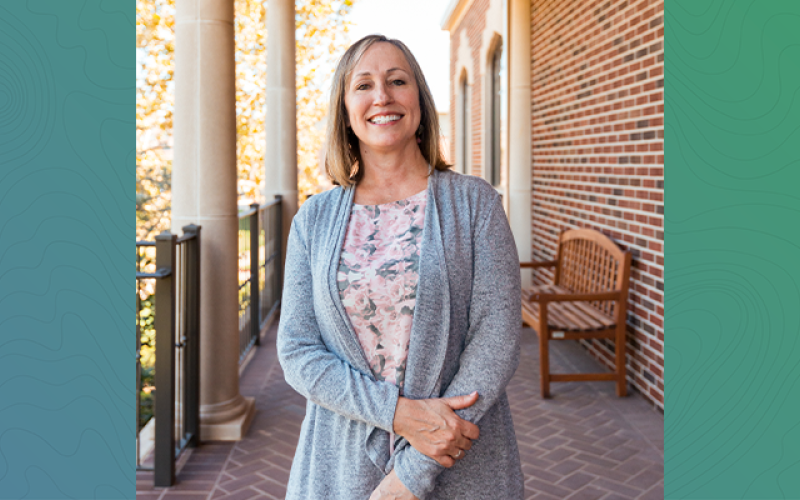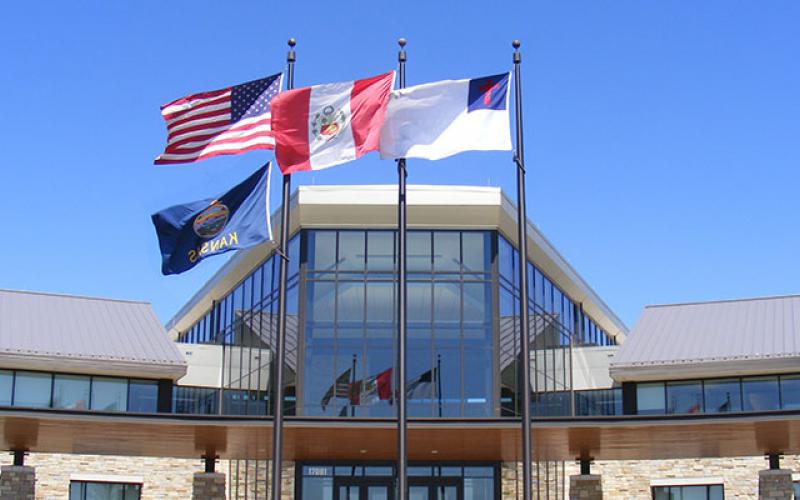
Open-door policy: Nashville First Church welcomes the city's immigrant community

In Nashville’s increasingly diverse culture quilt, it’s not unusual for a church to have one Sunday service in English and another service (often at the same time in an adjoining chapel, or room, or in the gym) for an immigrant community that has become an intrinsic part of the church, with its own pastor and the service conducted in the congregation’s native language. Two congregations in mostly larger Nashville churches are not that out-of-the-box. Five going on six is another matter.
Nashville First Church of the Nazarene at Fifth and Woodland has for eight years now hosted a Haitian congregation, and two years ago saw the birth of another congregation: members of eight different Congolese tribes who have emigrated from Africa and found new homes for themselves in Nashville. These two groups have been on the receiving end of lots of helping hands on assimilation, no small part of which has been done by the church itself — along with adjoining concerns such as the 510 Foundation — helping the immigrant population find jobs, find homes, learn English, and even get treated to the odd hot meal here and there. There are several other congregations under the roof, but primarily when talking about the diverse communities at the Church of the Nazarene, you’re usually talking about the Haitian and the Congolese African congregations, and the Emmaus homeless outreach.
“When I came to the church in 2011, the Haitian congregation attendance each Sunday was around 70 or 80 people,” senior pastor Kevin Ulmet says. “Today, weekly attendance averages between 125 and 130. The same pastor (Maromy Samuel) is still in charge, and they’re having a very effective ministry. These are established immigrants who are full citizens for the most part, and have been here for years, and they are established in their communities. They have jobs and most of them own homes.”
The initial influx of Haitian populations in the U.S. was driven by a variety of situations in their homeland, including periodic political upheaval, poverty, and the simple time-honored worldwide tradition of moving to America looking for a better life.
"When people hear about an ethnic church, they usually have many assumptions, but our Haitian congregation is more than just a community of immigrants who are here to live the American dream," Rev. Samuel says. "But we continue to invest in our local community and help connect resources with the global needs through various projects and ministries."
That’s the Haitians. The Congolese Africans, by contrast, are not merely looking for a better life; they’re refugees escaping a horror show — a 20-year-old civil war, internecine tribal violence, repressive regimes, and bloodshed. 2016 saw the biggest numbers yet in the U.S. of Africans from the Congo region managing to escape their nightmare at home and find a new start in America. But it didn’t just start last year, it’s been a constant flow for the past four or five years. The first Congolese refugees to show up at the church were there in the fall of 2014 for the English language classes offered through the 510 Foundation. (The church’s address is 510 Woodland St.). The foundation is a separate entity from the church and exists under the umbrella of East Nashville Life, a series of neighborhood ministries. The first Congolese families to visit the church for Sunday morning services came on Easter Sunday 2015, and within weeks that group of attendees had swelled to several dozen people, on their way to rapidly becoming their own group.
“Now, that congregation has grown to be between 150 and 200,” Ulmet says. “A lot of churches have disconnected alternative congregations using their facilities, but our church isn’t like that. These are fully integrated communities within the church. We have two Sunday morning services that are for the more typical, historic (largely white) congregation, then we also have the Haitian service, which is in Creole. Then we have the African service, which is in Swahili. And those four church services are all on Sunday mornings at the same times — and we also have a fully integrated children’s ministry.” (All the toddlers of the various nationalities play together in the same nursery at the same time, putting truth to the notion that racism has to be taught. The youth groups are integrated as well.)
“We have a fifth congregation,” he continues, “which we call the Emmaus, on Sunday afternoons, which ministers to a majority homeless population, although we do have people coming from the housing projects as well, within walking distance. And that congregation has now bloomed to about 180 every Sunday afternoon at 5:30.”
Services at Emmaus come with a full hot meal.
“It’s the only ministry of its kind in downtown East Nashville on Sunday afternoon. There’s a children’s ministry during that service as well.”
The church is now in the process of expanding to include a sixth congregation, a Hispanic group, which will also meet on Sunday mornings, begging the question: Where will they put them all?
“We already have several families attending, and we’re going to start a Bible study soon, and from that will spring a full congregation,” the senior pastor says.
“Our church is just one part of the community of concerned residents in East Nashville and has the facilities to provide, among other things, a meal plus worship opportunity for local folks, including the homeless,” parishioner Michael Gray says. “Our urban pastors attend all kinds of meetings. I have been known to invite folks I meet on the street. After doing this for many years, I believe NFCN has street cred — a reputation for providing meals, a shower opportunity, and general respite.”
Gray is an instrumental figure in Cheryl’s List, another 510 Foundation entity. Cheryl’s List runs a storage facility for good secondhand furniture, on the common-sense notion that the next step after housing a homeless family is giving them something to sleep and sit on. While there are similar programs also in operation in Nashville, Cheryl’s List goes one better: They deliver the furniture using a proper truck, which had always been a thorny missing piece of the puzzle for other similar outreach organizations.
“Cheryl’s List has its own board, applies for its own grants, and in general exists outside the church in the greater Nashville community,” Gray says. “We do take referrals from the Emmaus pastors, but we also take referrals from various civic agencies working with the homeless population, agencies like Centerstone, Operation Stand Down, Nashville Rescue Mission, Room in the Inn, VA Homeless, Catholic Charities, Metro Social Services, Streetworks, etc. We think of ourselves as part of a big team. We are a practical extension of the NFCN worshipping community.”
Eric Jans, like Michael Gray, is another very active lay member of the church.
“The church is over 100 years old, but in recent years, the congregation had largely moved to the suburbs,” Jans says. “There wasn’t a lot of East Nashville people coming here. It was mainly people who’d grown up in the church, now living in places like Hendersonville or Franklin, coming in on Sunday morning and then going back home. I worked with the Merchants’ Association and the church approached me about ‘Christmas Fest,’ a market that invited in a lot of retail merchants from East Nashville, and strengthened ties with the local community.”
Jans points out the church not only recently became debt-free, but they sold the vacant lot across the street.
“We didn’t set out to do all that we do,” Ulmet says. “Rather, it’s been brought to us by the reality of our city. And we recognized that, to truly be a community church in the area that we’re in, we had to open our doors to all people. It’s very exciting to see all this happening.”
--Republished with permission from The East Nashvillian



